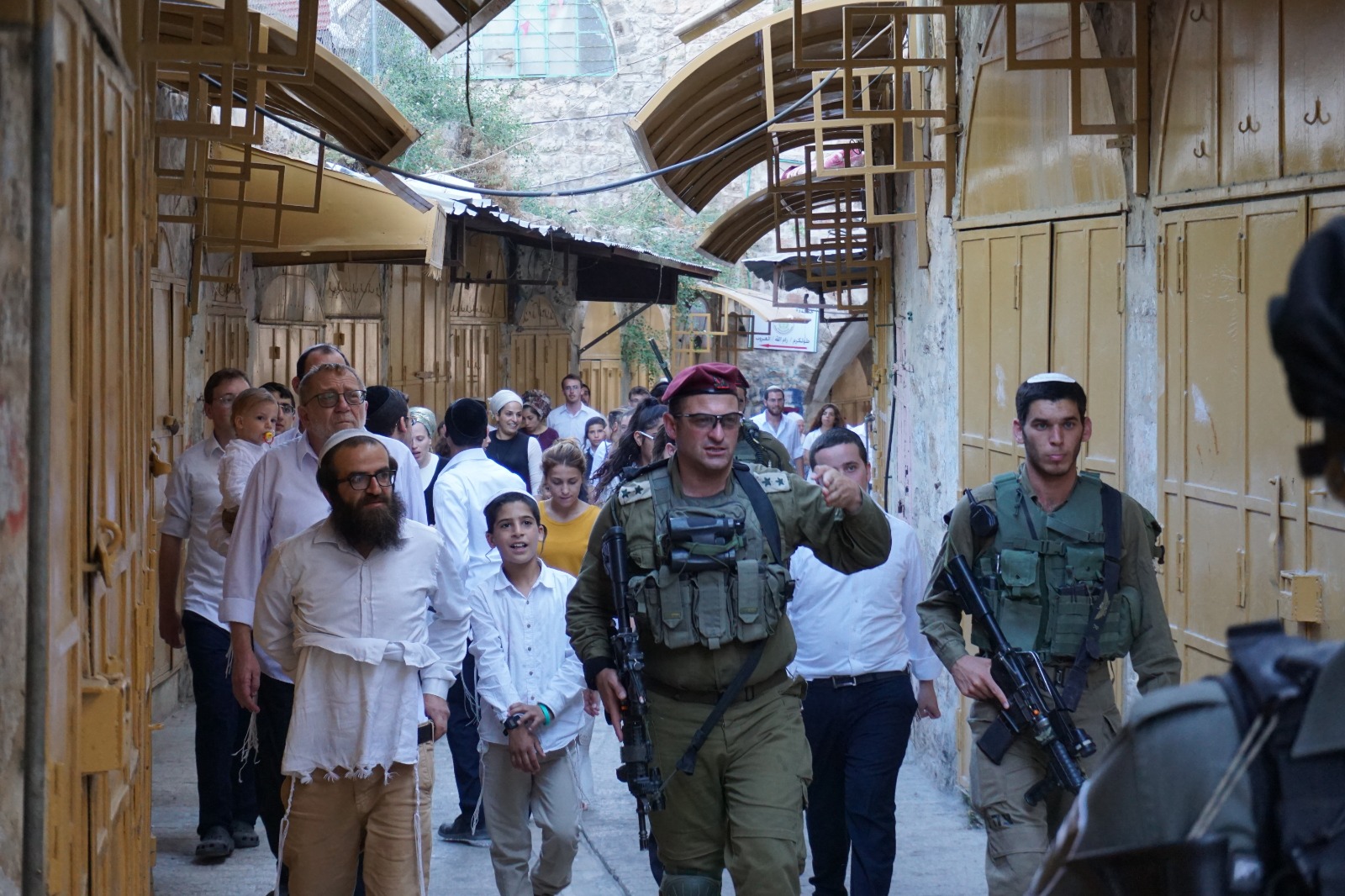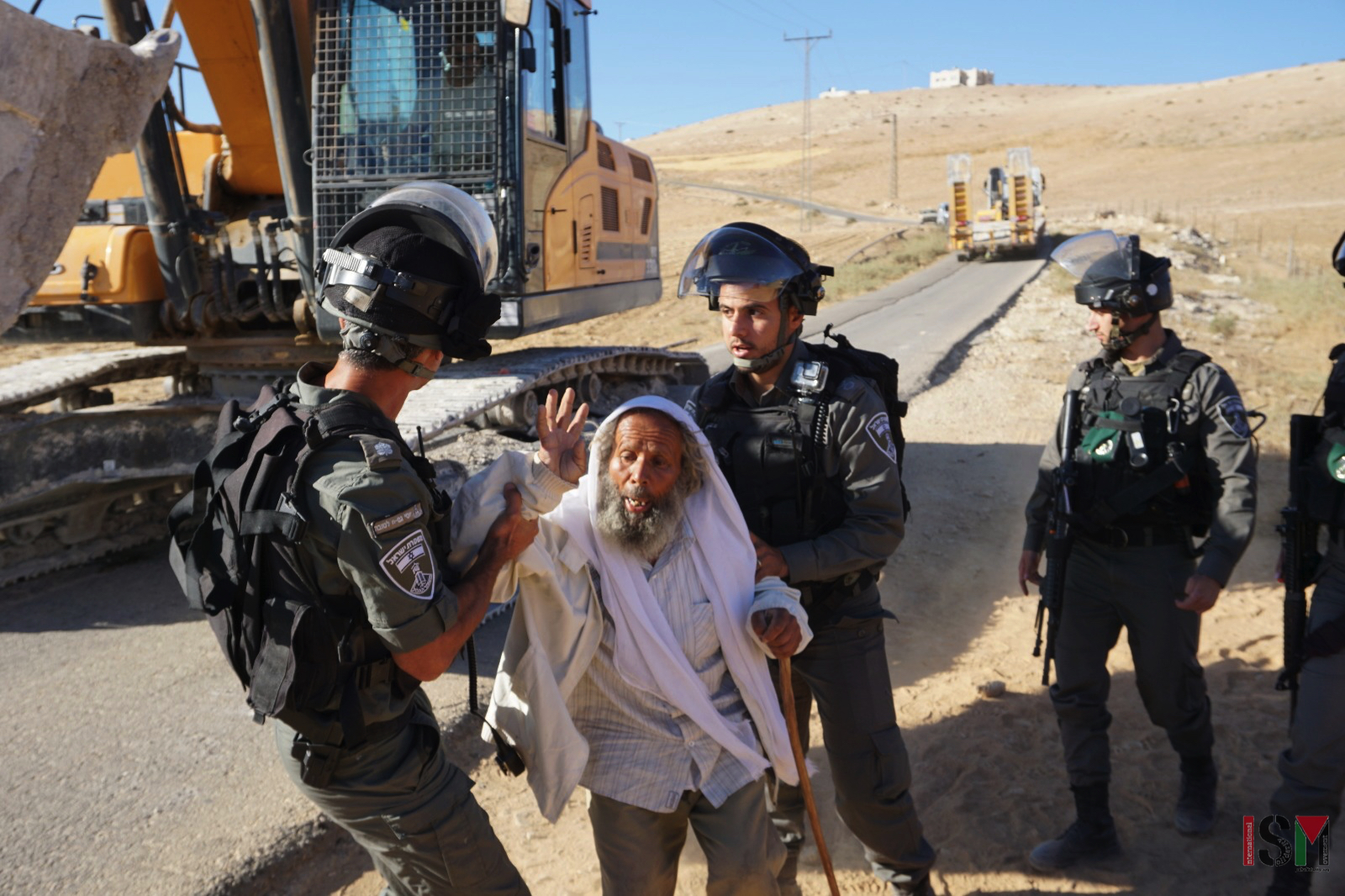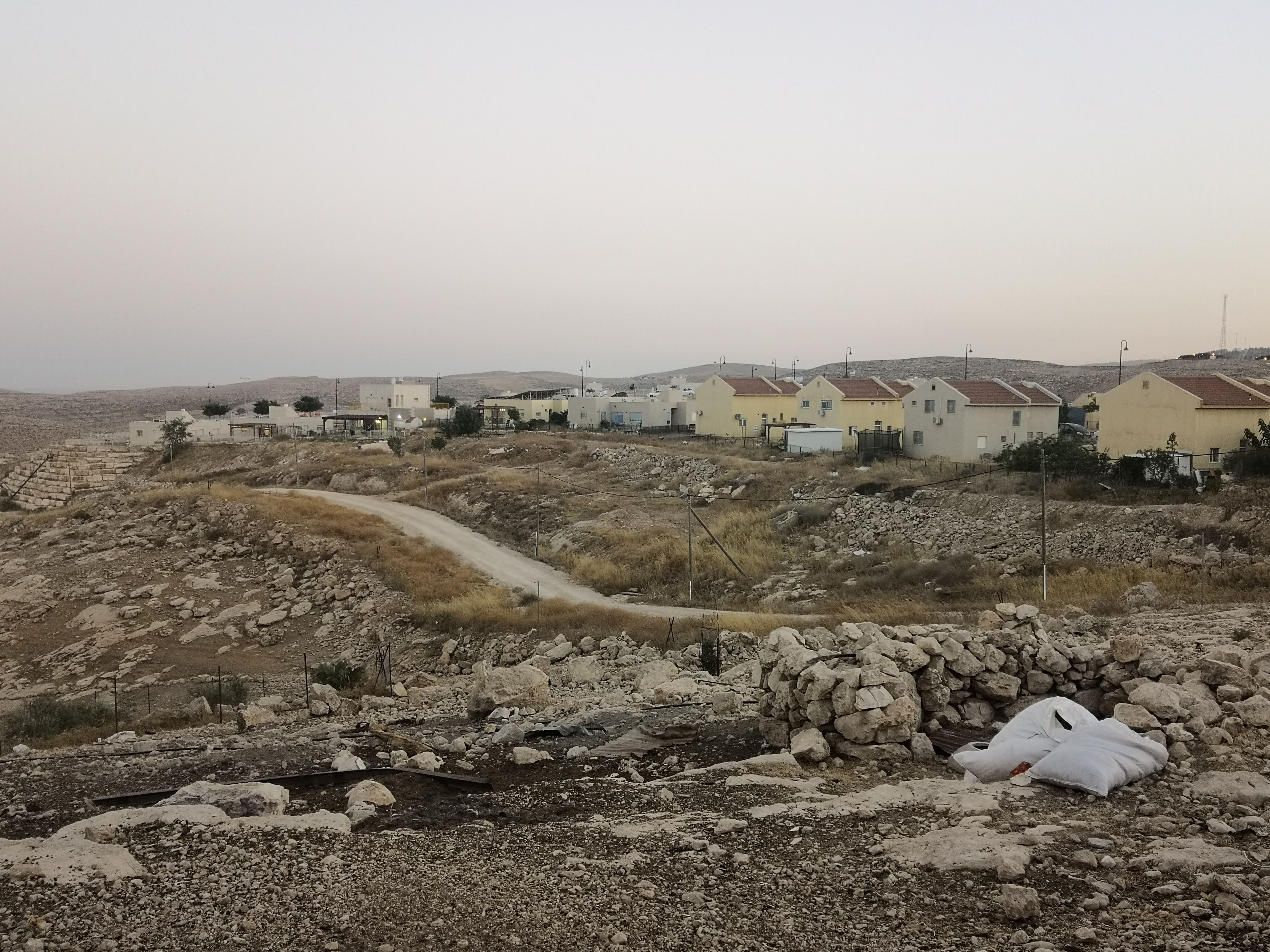Category: Features
-

Settler tour exemplifies the difficult reality of occupation in the Old City of Hebron – a photo essay
July 7 | International Solidarity Movement | Hebron, occupied Palestine Every Saturday, illegal Jewish settlers from around the West Bank take a “tour” of the busy souq (market) in Old City of Hebron, the busiest market street in the area since the closure of Shuhada Street. Local Palestinians believe that the Israeli authorities facilitate the…
-

Livelihoods destroyed in two days of demolitions in South Hebron Hills
July 4 | International Solidarity Movement | South Hebron Hills, occupied Palestine The South Hebron Hills have faced two consecutive days of demolitions starting early yesterday morning, with bulldozers destroying water wells and uprooting over 500 trees in two villages. An elderly Palestinian activist from Um al-Khair was also hospitalised yesterday after being violently…
-

Bedouin village of Um al-Kheir fights against new demolition threats
June 26 | International Solidarity Movement | Umm al-Kheir, south Hebron Hills, occupied Palestine The Bedouin village of Um al-Kheir in the South Hebron Hills have launched a new bid to save their homes from demolition. On Monday, activists from the village submitted a new master plan to the Israeli Civil Administration which, if accepted,…
